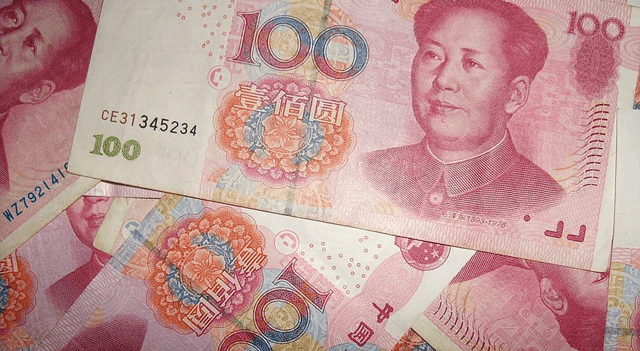Western Countries’ Forces in Ukraine
Classified intelligence files leaked online reveal that several Western countries have special forces operating within Ukraine, with Britain reportedly providing the largest contingent of 50 personnel. Another document suggests that the U.S. warned Ukraine about potential troop shortages in recapturing territory seized by Russia.
European Aviation’s Net Zero Goal
European aviation estimates show that reaching net zero emissions by 2050 would cost over €800 billion in additional expenses. The industry aims to achieve this goal through a combination of new technologies, carbon offsets, and improved efficiency in aircraft, engines, and air traffic management. However, achieving net zero emissions would require significant efforts beyond business as usual, according to a report commissioned by airline industry bodies.
Renminbi’s Rising Share in Trade
Analysis by the Financial Times reveals that the renminbi’s share of trade finance has more than doubled since the invasion of Ukraine. This surge is attributed to increased use of China’s currency for trade with Russia and the rising cost of dollar financing. The renminbi’s share of the market has risen from less than 2% in February 2022 to 4.5% a year later, putting it in close competition with the euro, which accounts for 6% of the total. However, both are still a small fraction of the dominant share held by the dollar.
Calls for Action on UK Stock Market
The CEO of InterContinental Hotels Group (LSE:IHG), the owner of Holiday Inn, has warned that the UK stock market is unattractive for listed companies and has called on authorities to take action to prevent further decline. Shareholders have reportedly asked about the possibility of switching the company’s primary listing to the U.S. during an investor roadshow, as the group currently has a secondary listing in New York.
Botswana’s Stake in Diamond Processor
Botswana has taken a 24% stake in Belgian diamond processor HB Antwerp, firing a warning shot to its longtime partner De Beers, the world’s second-largest diamond producer. Botswana’s president, Mokgweetsi Masisi, has threatened to abandon the relationship unless the state-owned marketing firm receives a larger share of rough stones in a sales agreement set for renewal in June. The partnership with De Beers has been crucial to Botswana’s economic prosperity.
Hongkongers’ Difficulty Accessing Pensions
Tens of thousands of Hongkongers who have moved to the UK are facing difficulties accessing up to £2.2 billion of their pension assets, as activists accuse Hong Kong’s government of retaliation against those seen as “unpatriotic” after a political crackdown. UK advocacy group Hong Kong Watch released figures showing that over 90,000 people are being “punished” for emigrating under the British National (Overseas) program. Activists describe this move as a “punishment” for those who have chosen to move to the UK.
France’s Ties with US Amidst Controversy
French officials emphasize the country’s close ties with the U.S. following controversial remarks by President Emmanuel Macron, who suggested that the EU could become a “vassal” of both Washington and Beijing. Macron’s comments, made after a state visit to China, were criticized by allies and European officials who highlighted the bloc’s reliance on American military support in the Ukraine conflict. Beijing has also conducted military drills around the contested island of Taiwan, further escalating tensions.
Russia’s Decreasing CA Surplus
Russia’s current-account surplus has decreased by over $51 billion from a year earlier, as sanctions increasingly impact the country’s source of hard currency since the invasion of Ukraine. Preliminary central bank data reveals that the surplus for the first three months of the year has decreased to $18.6 billion, the smallest first-quarter surplus since 2016. This is attributed to a recovery in imports and declining energy revenues due to international restrictions and falling gas exports to Europe, which puts strain on the ruble and highlights the need for Russian companies to tap into new markets.
Norway’s Economy Contracts for First Time
Norway’s economy contracted for the first time in seven months, primarily due to weaker construction and services related to fossil fuel extraction. This adds to the growing evidence of the impact of higher prices and credit costs on the country’s economy. Mainland gross domestic product, which adjusts for Norway’s offshore industry, declined by 0.2% in February compared to the previous month, marking the first decrease since July. This was in line with the central bank’s projections, although analysts had expected no change.
Canada’s Strong Economy Poses Challenge
Despite expectations of a slowdown, Canada’s economy continues to charge ahead, posing a challenge for the central bank as it considers holding its policy rate at 4.5% for a second consecutive decision. Bank of Canada officials have expressed confidence that higher borrowing costs would help slow demand, but economic data keep surprising to the upside. The job market remains strong, with abundant vacancies, and wage pressures persist. Even home prices, after a yearlong slump, may have found a bottom.
Berlin’s Tight Housing Market
Berlin’s housing market remains extremely tight, as even a steep increase in borrowing costs seems to have only briefly slowed down rising prices. The cost of purchasing a newly-built apartment in the German capital actually rose by 0.8% in the last quarter, partially reversing a significant drop recorded in the previous three-month period, according to data compiled by property ad firm Immobilien Scout for Bloomberg News. On average, a square meter now sells for 6,093 euros, which is approximately 100% higher than just seven years ago.
